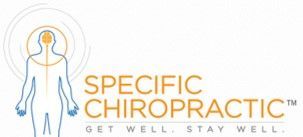
Gentle, Specific Chiropractic Care in Boca Raton, FL
Get Well. Stay Well.
At Specific Chiropractic in Boca Raton, Dr. Evan J. Hasson provides individualized, gentle, and precise chiropractic care designed to address the root cause of your pain—not just the symptoms.
Whether you're suffering from chronic pain, recovering from an auto accident, or managing a condition like fibromyalgia or scoliosis, we're here to help you feel better and stay better.
To schedule your first appointment, call us today at (561) 571-2468.
Our office is conveniently located at One W. Camino Real, Suite 111, Boca Raton, FL 33432.
Meet Dr. Evan J. Hasson
Dr. Hasson is passionate about helping people live pain-free lives. His approach is rooted in precision, care, and a deep understanding of the body’s natural healing processes.
He believes that when you align the spine, you empower the nervous system—and the entire body—to function at its best.
“Dr. Evan is the man! It was my first time going to a chiropractor, I had terrible neck pain, and he helped me very fast!”
Feel the Difference of Personalized Chiropractic Care
At Specific Chiropractic, we understand that no two patients are alike. That’s why Dr. Evan J. Hasson takes a personalized approach to every treatment plan, using gentle, specific techniques that are safe, effective, and tailored to your unique needs.
Our goal is to restore function, improve mobility, and enhance your overall quality of life by identifying and correcting the root causes of discomfort—not just masking symptoms.
Why Patients Choose Dr. Evan J. Hasson
- Gentle, Specific Adjustments
- Focused on the Root Cause
- One-on-One Patient Attention
- Safe and Effective Care for All Ages
- Comfortable, Modern Office in Boca Raton, Florida
Dr. Hasson is known for his compassionate care and expert knowledge. Patients throughout Boca Raton and neighboring communities trust him to deliver results through evidence-based chiropractic care.
WHERE IS YOUR PAIN?
Learn how we can help with your pain
Other Conditions We Treat:
Auto Accident Pain Relief
Whiplash, spinal misalignments, and soft tissue injuries are treated with care and expertise.
Chronic Pain Relief
Find long-lasting relief from ongoing pain that disrupts your daily life.
Multiple Sclerosis Pain
Gentle techniques designed to improve comfort and mobility for MS patients.
Fibromyalgia Pain Relief
Feel better with chiropractic care focused on reducing inflammation and nerve irritation.
Scoliosis
Non-invasive support to manage spinal curvature and associated discomfort.
Neck Pain
Alleviate stiffness, tension, and discomfort caused by poor posture, tech neck, or injuries.
Shoulder Pain
Gentle adjustments and therapeutic care can ease tension and restore mobility.
Back Pain
From sciatica to slipped discs, we address the source of your back pain.
Common conditions and symptoms that may respond well to chiropractic care.
Doctors of Specific Chiropractic do not treat medical conditions or diseases.
We remove stress to the nervous system with a gentle and safe correction.
Less stress to your nervous system will allow your body to adapt and heal more effectively and efficiently.
What we do has helped many people like you get well. If you suffer from any of the conditions below, call our office and see how a personalized treatment plan can help you Get Well & Stay Well (561) 571-2468.
Contact Us
Please do not submit any Protected Health Information (PHI)
Schedule Your Appointment
Don't let pain control your life.
Contact Specific Chiropractic and discover how gentle, specific chiropractic care can help you:
Get out of pain
Improve mobility
Live a healthier, more vibrant life
Dr. Evan and his team are dedicated to giving you the best chiropractic experience in Boca Raton.
Call now (561) 571-2468
our office is conveniently located at
One W. Camino Real, Suite 111, Boca Raton, FL 33432.
Get Well. Stay Well


